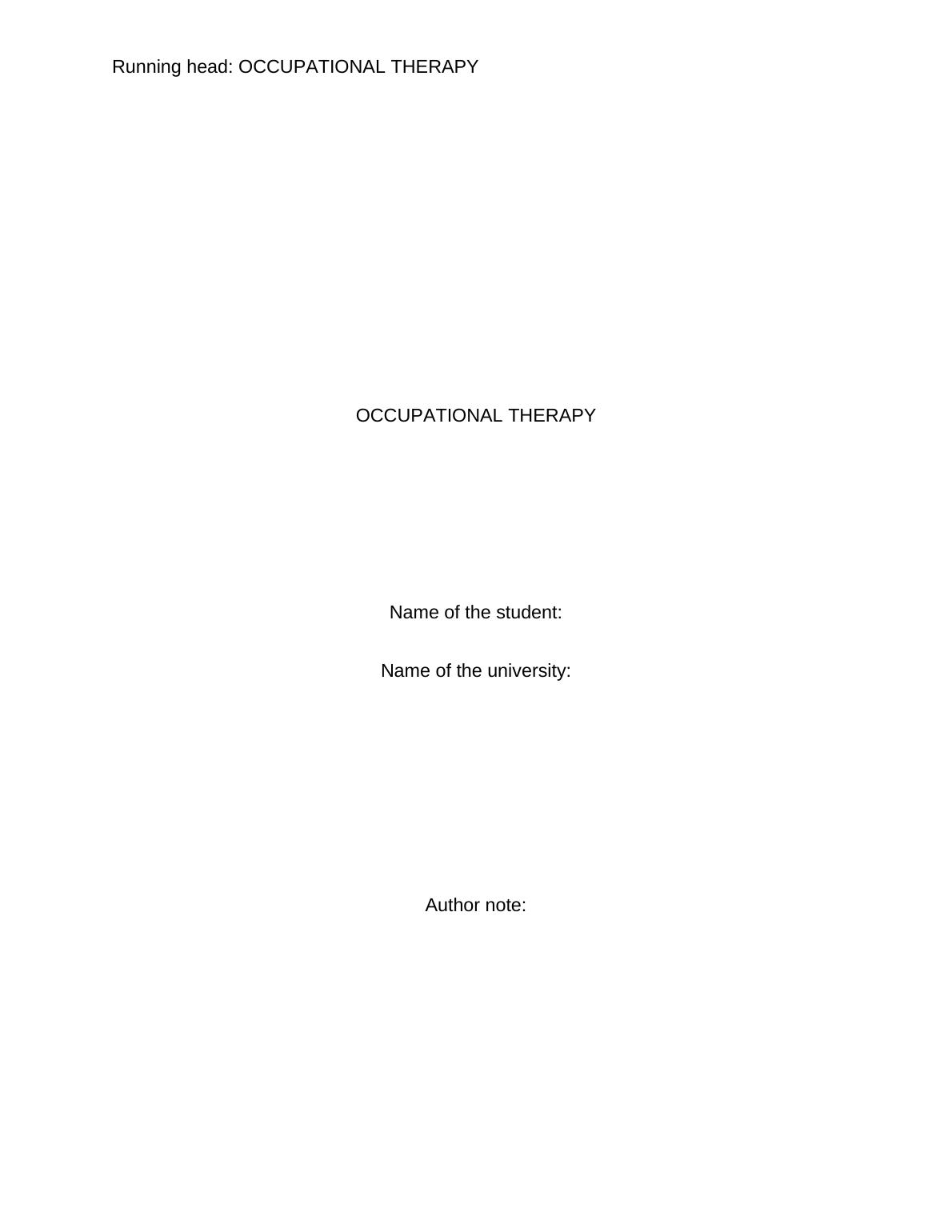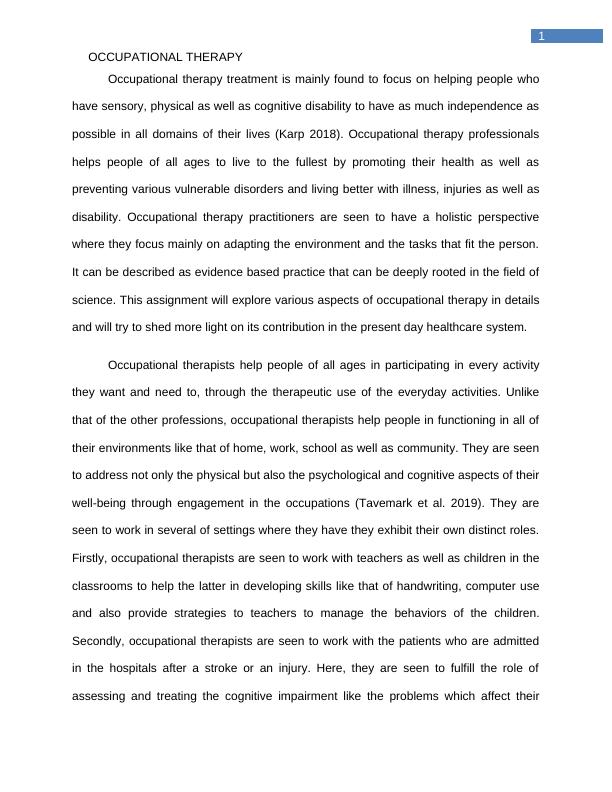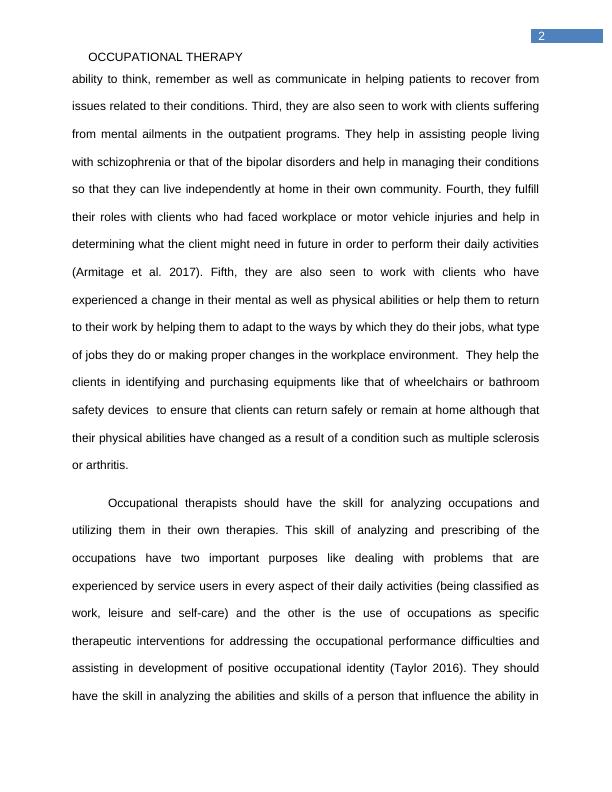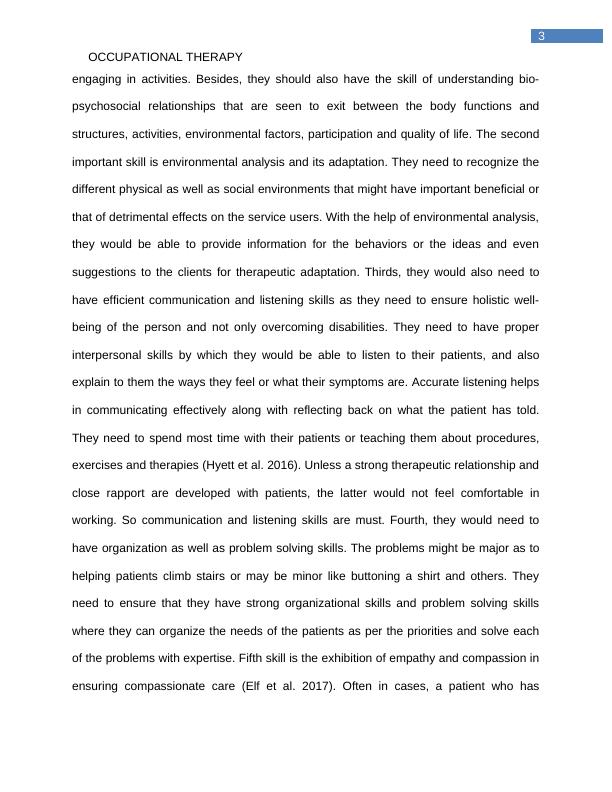Occupational Therapy: Promoting Independence and Well-being
To explore what makes Occupational Therapy unique and understand the relationship between person, occupation and environment.
12 Pages3144 Words380 Views
Added on 2023-04-20
About This Document
This assignment explores the role and importance of occupational therapy in promoting independence and well-being. It discusses the evaluation process, intervention methods, and the unique contributions of occupational therapists. Occupational therapy helps individuals of all ages engage in daily activities and live fulfilling lives.
Occupational Therapy: Promoting Independence and Well-being
To explore what makes Occupational Therapy unique and understand the relationship between person, occupation and environment.
Added on 2023-04-20
ShareRelated Documents
End of preview
Want to access all the pages? Upload your documents or become a member.
Return to Work for People with Long Term Disability through Occupational Therapy Services in Riyadh, Saudi Arabia: Mixed Methods
|12
|3205
|136
Occupational Therapy
|4
|575
|396
Assignment on Occupational Therapy
|15
|3654
|74
Health and Social Care
|7
|1936
|115
Introduction to Occupational Therapy: Roles, Responsibilities, and Core Skills
|16
|3784
|159
Occupational Therapists: An occupational therapists' role in helping injured, ill and disabled patients develop self-aware skills
|11
|3079
|219




